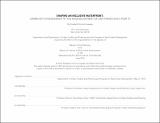| dc.contributor.advisor | Eran Ben-Joseph. | en_US |
| dc.contributor.author | Kuwada, Elizabeth Horton | en_US |
| dc.contributor.other | Massachusetts Institute of Technology. Center for Real Estate. Program in Real Estate Development. | en_US |
| dc.date.accessioned | 2015-09-29T19:03:19Z | |
| dc.date.available | 2015-09-29T19:03:19Z | |
| dc.date.copyright | 2015 | en_US |
| dc.date.issued | 2015 | en_US |
| dc.identifier.uri | http://hdl.handle.net/1721.1/99100 | |
| dc.description | Thesis: M.C.P., Massachusetts Institute of Technology, Department of Urban Studies and Planning, 2015. | en_US |
| dc.description | Thesis: S.M. in Real Estate Development, Massachusetts Institute of Technology, Program in Real Estate Development in conjunction with the Center for Real Estate, 2015. | en_US |
| dc.description | Cataloged from PDF version of thesis. | en_US |
| dc.description | Includes bibliographical references (pages 129-135). | en_US |
| dc.description.abstract | Community engagement in large-scale development projects is a critical step in the real estate development process, needed both to obtain official project approval and to gain feedback to create projects that better provide for and respond to the needs of the community. In San Francisco and other cities with extensive political and community involvement surrounding issues of urban growth, community engagement can be particularly important. Yet the community process can be agonizing, rife with contentious public hearings in which only those who are avidly for or against a project participate. Because of this, developers may dismiss engagement as an unpleasant formality necessary for project approval. However, the community process undertaken at Pier 70, a large waterfront development project in San Francisco, demonstrates that engagement can be an effective tool to build trust, gain project support, and make projects that better serve the community. The developers of Pier 70, Forest City, have gained remarkable community support for their project, including receiving citywide voter approval for proposed height changes on site. This thesis examines Pier 70 as a case study to explore how developers can help foster trust and effective collaboration through the community engagement process. To do so, it draws from a review of the process and problems of standard community engagement and presents alternative models. It also discusses recent large-scale waterfront projects in other cities, the history of San Francisco's highly politicized development process, and increasing controversy concerning waterfront development. Analysis suggests that Forest City has led an effective engagement strategy, gaining support and meaningful feedback throughout the process. Case study findings at the scale of the developer, project, neighborhood, and city demonstrate how Forest City has tailored their approach to the specific site to align the project and community process with the needs of the city and community. Forest City has been successful largely due to their ability to act locally, engage broadly and openly, and build trust with the community. Ultimately, this thesis draws lessons from Pier 70's development process to suggest methods for ensuring that development projects are not only profitable, but also valuable for the community and surrounding urban realm. | en_US |
| dc.description.statementofresponsibility | by Elizabeth Horton Kuwada. | en_US |
| dc.format.extent | 135 pages | en_US |
| dc.language.iso | eng | en_US |
| dc.publisher | Massachusetts Institute of Technology | en_US |
| dc.rights | M.I.T. theses are protected by copyright. They may be viewed from this source for any purpose, but reproduction or distribution in any format is prohibited without written permission. See provided URL for inquiries about permission. | en_US |
| dc.rights.uri | http://dspace.mit.edu/handle/1721.1/7582 | en_US |
| dc.subject | Urban Studies and Planning. | en_US |
| dc.subject | Center for Real Estate. Program in Real Estate Development. | en_US |
| dc.title | Shaping an inclusive waterfront : community engagement in the redevelopment of San Francisco's Pier 70 | en_US |
| dc.title.alternative | Community engagement in the redevelopment of San Francisco's Pier 70 | en_US |
| dc.type | Thesis | en_US |
| dc.description.degree | M.C.P. | en_US |
| dc.description.degree | S.M. in Real Estate Development | en_US |
| dc.contributor.department | Massachusetts Institute of Technology. Center for Real Estate. Program in Real Estate Development. | en_US |
| dc.contributor.department | Massachusetts Institute of Technology. Center for Real Estate | |
| dc.contributor.department | Massachusetts Institute of Technology. Department of Urban Studies and Planning | |
| dc.identifier.oclc | 922324509 | en_US |
